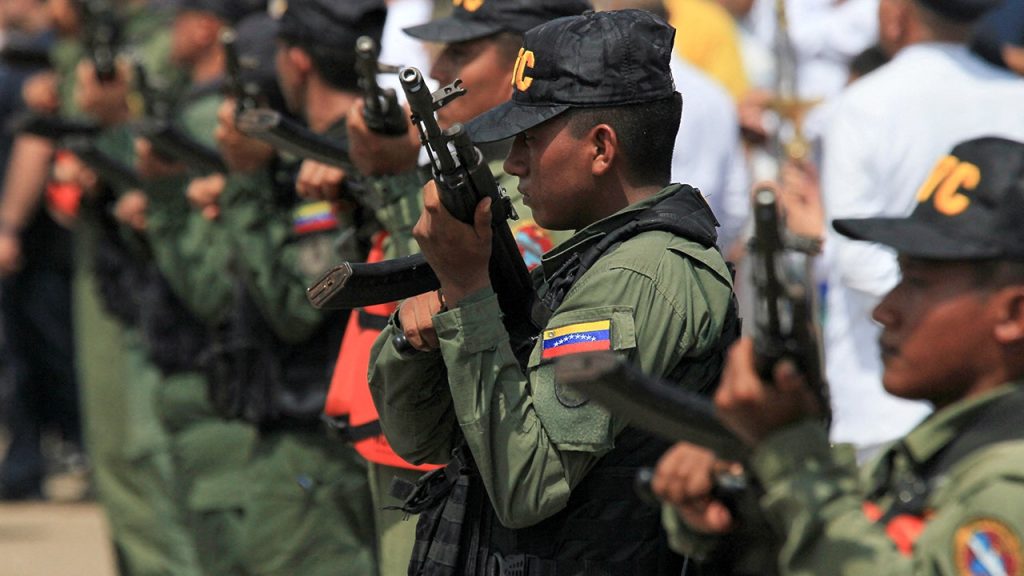FAA Issues Warning for Airlines Flying Over Venezuela Amid Heightened Military Activity
In a recent advisory, the Federal Aviation Administration (FAA) has cautioned airlines about the potentially hazardous conditions when flying over Venezuelan airspace. The warning comes as the United States has significantly ramped up its military presence throughout the Caribbean under U.S. Southern Command, deploying bombers, warships, and Marines as part of an expanded campaign targeting drug-trafficking networks and what officials describe as “narco-terrorist” operations in proximity to Venezuela. The FAA’s notice specifically advises operators to “exercise caution when operating in the Maiquetia flight information region at all altitudes,” citing a deteriorating security situation and increased military activities in and around Venezuelan territory. This growing concern extends to potential risks that could affect aircraft at any altitude, whether during overflight, arrival and departure phases, or even while on the ground at airports.
Though direct flights between U.S. carriers and Venezuela have been suspended since 2019, the advisory remains relevant as several airlines continue to navigate Venezuelan airspace on South American routes. The FAA has requested that airlines provide at least 72 hours’ advance notice if they plan to fly through the area. In response to these growing concerns, American Airlines confirmed it ceased flying over Venezuela in October, while Delta Air Lines stated it had stopped “a while ago.” These precautionary measures reflect the serious nature of the security situation and the airlines’ commitment to passenger safety amidst geopolitical tensions.
The FAA’s advisory specifically highlights an increase in Global Navigation Satellite System (GNSS) interference within the Maiquetia Flight Information Region since September 2025, coinciding with heightened Venezuelan military readiness. Several civil aircraft have reported experiencing GNSS interference while traversing this airspace, with some cases resulting in lingering effects throughout the duration of their flights. The technical nature of these disruptions is particularly concerning as GNSS jammers and spoofers can affect aircraft up to 250 nautical miles away and potentially impact critical communication systems, navigation equipment, surveillance capabilities, and various safety mechanisms aboard aircraft. These technological disruptions represent a significant safety concern for commercial aviation in the region.
Adding to these concerns, the FAA noted that Venezuela has conducted multiple military exercises since early September, including the mass mobilization of thousands of military personnel and reserve forces. While the advisory clarifies that Venezuela has not expressed any intention to target civilian aircraft, the FAA emphasizes that the Venezuelan military possesses advanced fighter aircraft and multiple weapons systems capable of reaching or exceeding civil aircraft operating altitudes. The advisory also mentions potential low-altitude risks from man-portable air defense systems and anti-aircraft artillery, painting a comprehensive picture of the multilayered threats that could potentially impact civil aviation in the region. These factors collectively contribute to the FAA’s characterization of the situation as “potentially hazardous.”
The timing of this advisory coincides with increased U.S. military activity in the region. The U.S. Southern Command has expanded its presence across the Caribbean, with the recent arrival of a U.S. Navy destroyer in Trinidad and Tobago signaling heightened military attention to the area. This deployment is part of what appears to be a broader strategy under the current administration to address narcotics trafficking and related security concerns in the vicinity of Venezuela. The confluence of these military movements with the FAA’s warning suggests a complex geopolitical situation that has direct implications for civil aviation safety, highlighting the interconnected nature of international relations and air travel security concerns.
For passengers and airlines alike, this advisory represents the real-world impact of geopolitical tensions on everyday air travel. While most commercial travelers will not be directly affected due to the existing suspension of direct flights, the warning serves as a reminder of how international relations and security concerns can reshape air routes and travel options. The FAA continues to monitor the situation closely, and airlines are responding with appropriate caution by adjusting their flight paths to prioritize passenger safety. As the situation develops, the aviation industry remains vigilant, demonstrating the complex balance between maintaining global connectivity and ensuring the safety of international air travel in regions experiencing political and military tensions.


